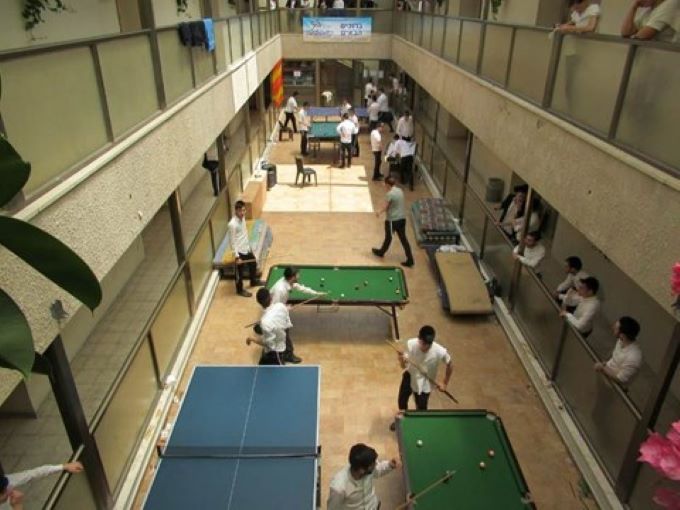The decision of HaGaon HaRav Chaim Kanievsky to reopen the Charedi educational system was criticized by the secular sector in Israel. But as YWN reported on Monday, the fact that the morbidity in the Chareidi sector is now the lowest it’s ever been despite the reopening of schools, has helped spur the government to approve the reopening of all educational institutions in Israel.
In a hearing held on Tuesday in the Knesset’s State Audit Committee, data was presented that highlights some of the reasons for HaRav Chaim’s decision to reopen schools, including girls’ schools.
Avner Ben-Shoshan, director of the Elam Association for at-risk youth, presented dismal data during a discussion in the Knesset’s State Audit Committee, according to which 30% of yeshiva students have left their yeshivas since the beginning of the coronavirus crisis. “Out of 80,000 bochurim, 24,000 are now on the streets,” he said.
Ben-Shoshan added that unfortunately there is a shortage of professionals to properly address this issue and provide an adequate solution.
(YWN Israel Desk – Jerusalem)












6 Responses
Not every bochur who didn’t come back to yeshiva is out on the streets. I personally know of some who enjoyed learning on their own or with a chavrusa in a local shul and (temporarily) continued learning with great hasmada outside of the yeshiva framework. But there surely are many others who are in serious trouble with is why the Belzer Rebbe chose not to close their educational system. Teens with no framework is a situation of ודאי that there will be many קרבנות בנפש and he chose to protect them over קרבנות בגוף.
I see. Prevent the youth from becoming professionals by incarcerating them in yeshivas. Then they don’t return because they were unfit to be there in the first place. Then complain that there are no professionals to help them. Vicious cycle.
are you nuts is the the BEST picture you can find of bachurim in israel
The data is pretty much the same regardless of country, culture or religion. For many children, no school means extended vacation from any academic pursuits. And it turns out, unlike major epidemics in the past, that children are much less likely to get sick than adults suggesting the closures were unjustified.
In all fairness, the government of the world misread the data (note: data analysis is not in the skill set associated with politicians), thought Covid19 was something such as Ebola or Smallbox (easy to catch, always made infected persons seriously ill and frequently fatal, and that children were at the highest risk). The politicians weren’t trying to undermine education, so it was clearly “be-shogate”.
Either (1) tens of thousands of bochurim have decided to study at home for legitimate reasons, such as pikuach nefesh, in which case – why slander them and declare to the world that they are ‘on the streets’, or (2) tens of thousands of bochurim have decided that they want to do something else with their lives from now on (probably not just shooting pool and wandering the streets as the article seems to imply), in which case – why try to force them to return to yeshiva?
I dont live in EY, but, I would imagine with 24,000 bachurim out on the streets, someone is bound to see some of them. nu?